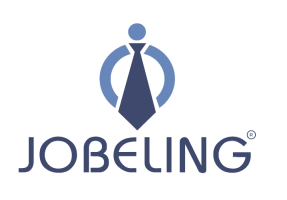
The entertainment industry is one of the most competitive markets in the world. The best way to succeed as a performer or artist is to have an agent. Not only do agents help their clients get auditions and book jobs, but they also give them career advice and support them through difficult times.
However, getting an agent today is more difficult than ever before due to increased competition from both new talent and established actors who have been in the game for decades longer than you’ve been alive.
That said, there are still several ways you can find representation if you’re willing to put in some work first—and that starts with creating a top-notch application package! Find out how to get a talent agent in 2024.
Contents
- 1 Preparing Yourself for Representation
- 2 Research and Market Analysis
- 3 Creating an Outstanding Application Package
- 4 The Art of Networking
- 5 The Submission Process
- 6 Meeting with Talent Agents
- 7 Evaluating Agent Offers
- 8 Legal and Ethical Considerations
- 9 Staying Updated in the Industry
- 10 FAQs
- 11 Conclusion
Preparing Yourself for Representation
A talent agent is a person who represents actors, models, and other performing artists. The role of an agent is to get their clients to work in the entertainment industry by negotiating contracts with producers, directors, and casting directors.
A talent agent earns their commission through the payment actors receive for working on set or in front of the camera. Most agencies charge 15% of this amount. For example: If an actor earns $100,000 from one project, their agency will earn $15,000 (15%).
Depending on what type of job you’re seeking, there are different types of agents who specialize in different areas, such as music or television commercials. You’ll need to which type suits your needs best before contacting anyone about representation so that time will be well-spent once negotiations begin!
Research and Market Analysis
To get a talent agent in 2023, you must do some research and market analysis. The first thing you should do is use social media. You can find out about the latest news in your industry by following industry publications, blogs, and magazines on Twitter or Facebook. You can also search for people talking about your field on Twitter using hashtags like #marketing or #PR.
Reading newsletters published by professionals in the field is another approach to learn more about what’s going on; these could be publications from trade groups or professional organizations like the Chartered Institute of Public Relations (CIPR).
You’ll also want to look at podcasts that cover your related topics; these can be found on iTunes under categories such as Business & Money/Business News & Advice/Entrepreneurship & Small Business/Management & Leadership.
Creating an Outstanding Application Package
To create an outstanding application package, you need to know what each piece is and how they work together.
Resume
A resume summarizes your professional experience and accomplishments (or lack thereof). It should be concise and clear, listing your skills, education level, and specialty areas.
It’s also important to include any jobs that may have yet to be on your official employment record–for example, if you worked as an intern at a company before being hired there full-time.
Headshot
A headshot is similar in appearance to a passport photo but typically taken by a professional photographer instead of yourself using the camera on your smartphone or tablet.
This image will be used for marketing materials such as posters or flyers promoting auditions/callbacks for roles that require actors who look like themselves; it could also appear alongside their name when submitting applications online through websites like Breakdown Services, where casting directors search through thousands upon thousands of applicants every month looking for specific kinds of talent based off their descriptions listed within each actor’s profile page.
The Art of Networking
Networking is a key part of the process. It would help to find the right people to connect with and ensure you are prepared with a good elevator pitch.

- Do your research and find networking events in your area where people from the industry will be present. These events include conferences, meetups, or workshops at local colleges or universities. Make sure to bring business cards!
- Additionally, you can look up professionals in the business on Facebook groups relevant to your industry or LinkedIn. This will make meeting them in person appear more natural because there is already some sort of correspondence (email exchanges) between the two of you.
The Submission Process
Once you’ve determined your target market and honed your pitch, it’s time to submit your work.
The submission process can be intimidating, but if you’re careful about whom you send things to and follow their guidelines carefully, the chances of getting rejected are small.
The most important thing is that you’re sending out work that fits with the agent–both in terms of genre and style–and doesn’t conflict with other submissions they’ve received from other authors or publishers.
Meeting with Talent Agents
There are a few things you should do before meeting with talent agents. First, make sure that your resume is up to date and contains some information about your talent and experience.

Second, prepare for the meeting by practicing what you will say in front of a mirror so that it flows naturally when speaking with an agent in person.
Thirdly and most importantly, dress professionally for this important occasion!
Evaluating Agent Offers
When receiving offers from agents, it’s important to know what to look for in an agent and how to get the best deal.
Agents have different rates based on their experience and reputation. Some may offer additional services like marketing or monetary guarantees that help protect you as an actor if no work comes in after signing with them.
Others may be looking at dollar signs rather than taking care of their talent properly.
Legal and Ethical Considerations
When considering whether to hire a talent agent, there are several things to be aware of. First, you should know that some laws and regulations apply specifically to talent agents. For example, the Talent Agents Act (TAA) sets forth requirements for anyone who wants to be a licensed talent agent in California.
Second, suppose you decide not to hire an experienced professional with expertise in this area. In that case, it’s important for you as an aspiring actor or actress working with a novice representative–and even more important for other people who may come into contact with them–that he or she understands what constitutes an ethical conflict of interest within their industry and stays away from activities such as nepotism or bribery that could compromise their integrity as well as yours.
Staying Updated in the Industry
To stay updated in the industry, you must know the latest trends and developments. Check out industry publications such as Variety or Deadline.
Being active on social media is also a great way to keep up with new films, directors, and actors coming into their own. Social media allows you access to their lives through posts they make on Instagram or Facebook–you may even get some tips from them!
If there’s someone whose work impresses you enough (or if they’re simply someone who inspires), reach out via direct message: perhaps they’ll be willing to meet up over coffee so that you can discuss your career goals together.
FAQs
Your talent agent will be an important part of your career, so it’s important to understand what they do and how they can help you.

What Can I Expect From My Agent?
Your agent should be a source of guidance and advice throughout the process. They should also be available for meetings with casting directors and other industry professionals, as well as provide feedback on auditions or performances when you need it most. If you have any questions about anything at all, your agent should be able to answer them–and if not, they should know where to find the answers!
How Do I Work With My Agent?
Your relationship with your talent manager won’t necessarily be perfect–it takes time for both parties involved in any partnership like this one (including yours) to get used to each other’s habits and preferences before things start clicking into place.”
Conclusion
In conclusion, this guide has given you an idea of what it takes to get a talent agent. We know it can be a daunting process, but with the right attitude and application package, you’ll be sure to find success!
Jobeling is your desired talent agency app that matches talents with employers and agencies.
Download our app today and make your talent shine.
